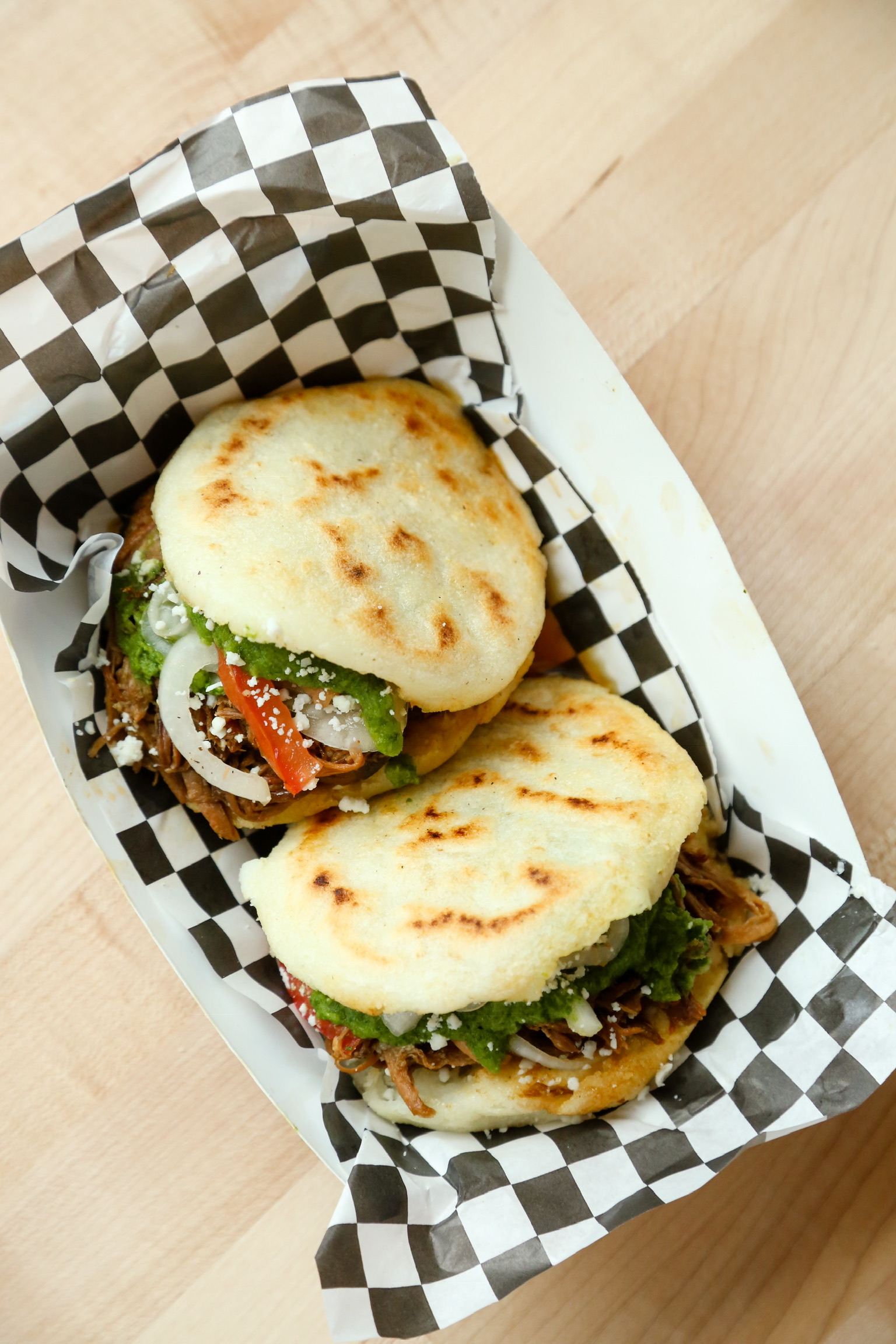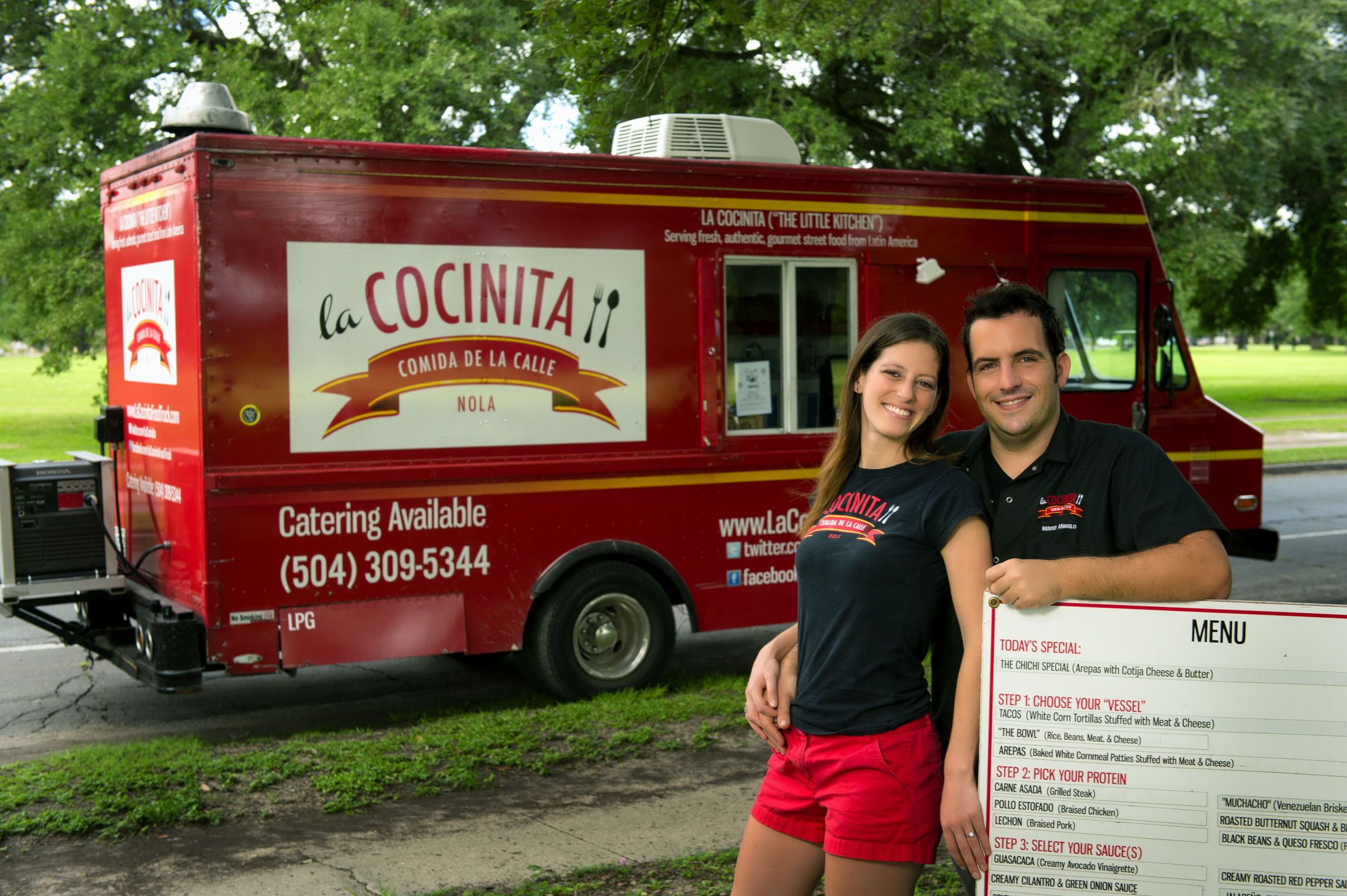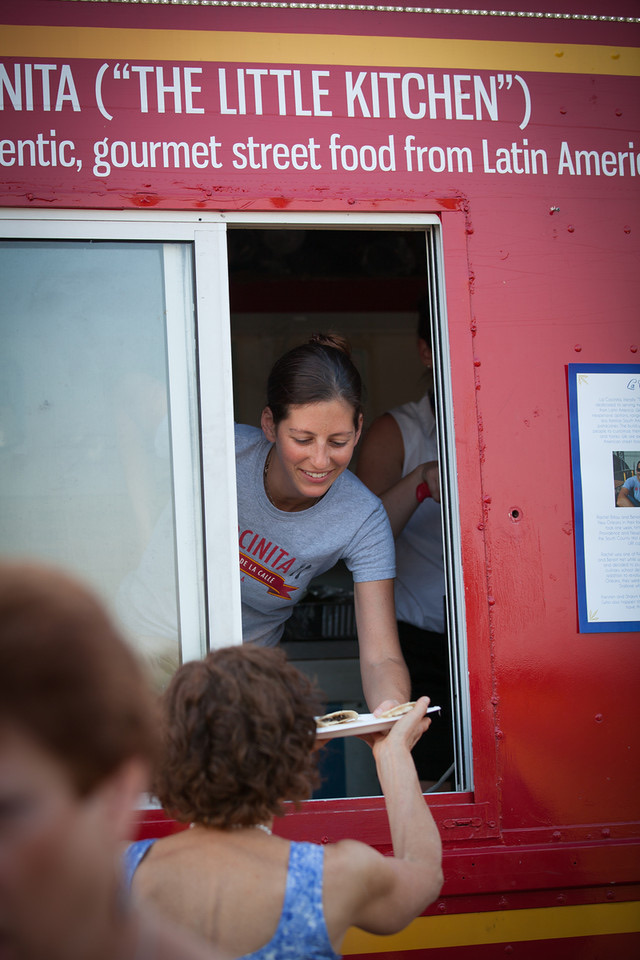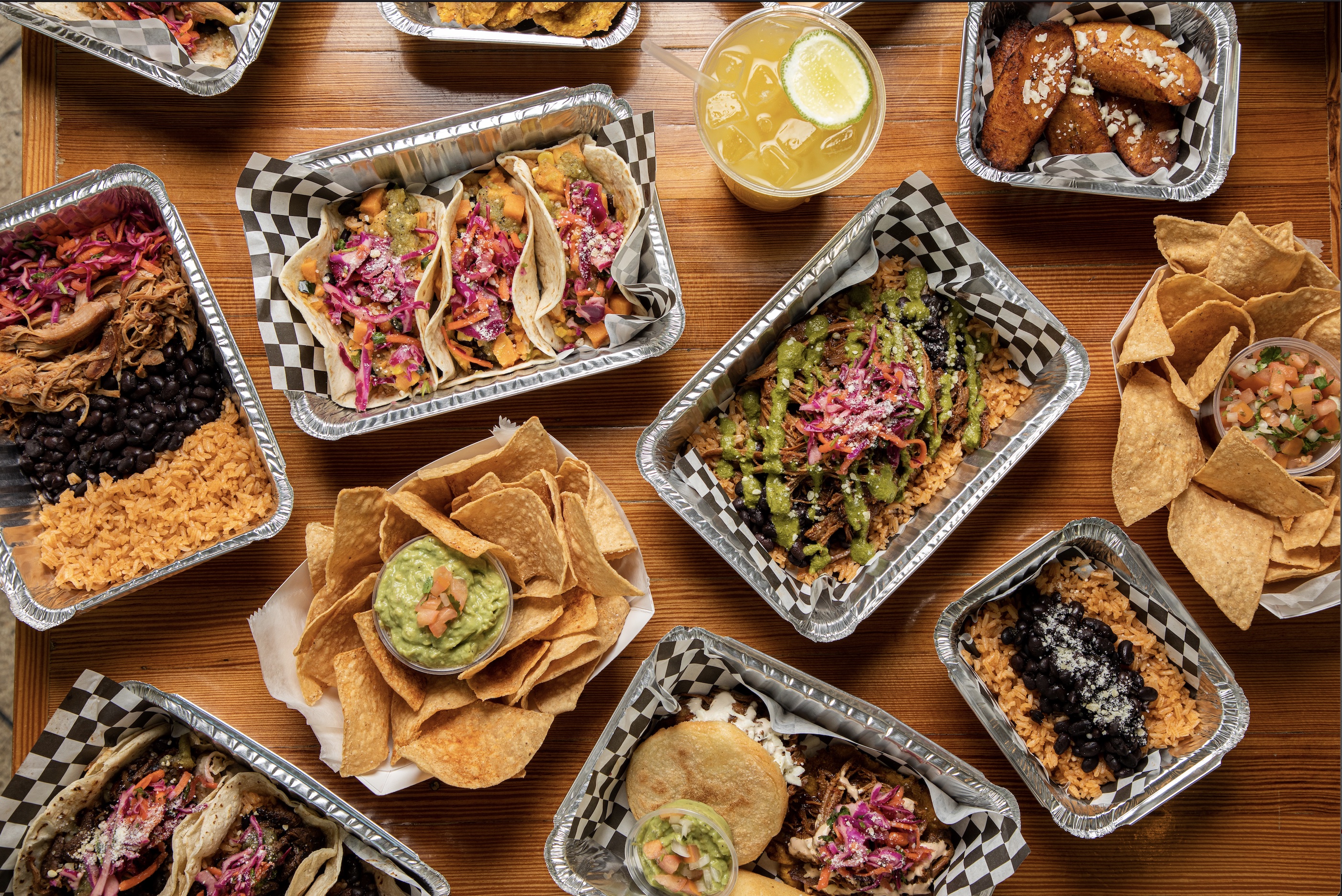
Discovering your passion can be life changing. For Chef Benoit Angulo, his passion was unlocked while growing up in Venezuela when he learned to make arepas. Arepas are like a cross between a tortilla, a pancake, and sandwich bread and are very common in northern South America. Despite his young age, Benoit quickly became the designated expert for family and friends when it came to making the dish.
“It’s just what I grew up with. Arepas are a big part of Venezuelan culture,” Benoit says. “There is definitely a comfort food aspect to it.”
Benoit can track his love for cooking from those early moments. Although his passion ultimately led him away from his home country to establish a culinary career in the US, his cooking remains rooted in the traditions learned in the kitchens of friends and family, even as he innovates new flavors and combinations.

Over the past 10 years, Benoit and his business partner and wife Rachel Angulo have turned comfort food into a full-blown business, operating two successful food trucks in New Orleans and Chicago by the name of La Cocinita, which translates to “The Little Kitchen” in Spanish. In those rolling kitchens, Benoit has expertly combined his formal culinary skills with the traditional practices he picked up as a curious kid in Caracas, introducing the two cities to the world of arepas, patacones, tacos, and quesadillas Venezuelan-style.
“A lot of people come and just want the tacos they know and love,” Rachel tells me. “It’s the people that try something new, or try the arepas, that get hooked and want to come back.”

Starting a food truck, with its freedom to experiment and fewer barriers to entry, feels like an obvious play for a young chef trying to make a name for himself in the modern American culinary scene. However, Benoit makes it clear that the roots of their choice of business model run deeper.
“Growing up in Caracas, there are different little alleys and corners in every neighborhood designated as ‘the hunger street’ — ‘calle de hambre.’ Essentially, it’s a place where you go for a quick lunch in-between shifts or a place to go after a night out with your friends and a few drinks,” he says. “I felt like New Orleans was kind of lacking that aspect.”
The idea of bringing ‘hunger street’ a little closer to New Orleans came to Benoit after a late night of drinks on the town with Rachel.
“A big part of ‘calle del hambre’ is what they call ‘areperas,’ which are essentially arepa joints that have every arepa you can imagine, baked, fried, made over coals,” Benoit says. “My spiel when I pitched to Rachel when we were hungry after a few drinks was simply, ‘Do you want to open up a food truck?’ I was just thinking about wanting an arepa before bed, and that’s how it came about.”
But as simple a story as that sounds, Benoit and Rachel were immediately hit with roadblocks when they set out to turn La Cocinita into a reality. During the process of outfitting and modifying their food truck, they learned that there were no available permits for a new food truck in New Orleans and wouldn’t be for years. Couple that with some archaic rules about where and when food trucks could and couldn’t operate and Benoit and Rachel were in for a test of their own fighting spirit. They didn’t let that challenge stop them from realizing their dream, though. Instead, they worked with the local government to reform outdated and limiting laws — giving La Cocinita and other businesses in the community a chance to flourish.
Fast forward 10 years later and La Cocinita is now a staple of the New Orleans and Chicago street food scene, meeting the demands of foodies while expanding on the idea of a classic arepa.
“It’s not a classic Venezuelan Arepera. It’s something that’s influenced by our market. A classic arepa is arepa, shredded cheese, and butter… but being here, we made the decision to stuff our ingredients inside. It’s the same way I learned how to make them back home. Here in Chicago, we have actual Venezuelan moms making your empanadas and arepas, we have a Venezuelan heavy kitchen so that brings a lot of traditional influence, but with a modern twist,” says Benoit.

Like countless other restaurants and food trucks, Benoit and Rachel faced an existential threat to their business in March 2020 when COVID-19 hit. With her background in social work and a passion for helping others just as strong as Benoit’s passion for cooking, Rachel made sure that La Cocinita continued to serve the community. Waiting for the storm to pass just wasn’t an option.
“We had a team that wanted to work and food in the kitchen so it was kind of a no-brainer to start collecting donations for meals that we were discounting and serving to frontline workers,” says Rachel, who had previously worked in ICUs and quickly thought about the risk of burnout for doctors and nurses.
“We figured comfort food would bring a ray of sunshine to their days.”
The pandemic gave Benoit and Rachel a lot of time to think about what the evolution of their “little kitchen” looks like. Unsurprisingly Benoit is still exploring ways to push his culinary style to meet the demands of tomorrow. While the pandemic was hard on business, it helped Benoit and Rachel develop a future-focused game plan.

“We definitely have some ideas that were probably influenced by the pandemic,” Benoit says. “We’ve been talking about plant-based local sourcing type stuff, changing our menu in a way where we are a little more sustainable and more locally driven. One of those big things about the pandemic was revealing supply chain issues. That’s one of the many ideas we have for what La Cocinita will look like, but that’s the one I think about the most — how we’ll change and how we can have a more positive impact.”
Whatever La Cocinita’s future looks like, Rachel and Benoit’s efforts show that it’ll be one forged from passion and a fighting spirit.
